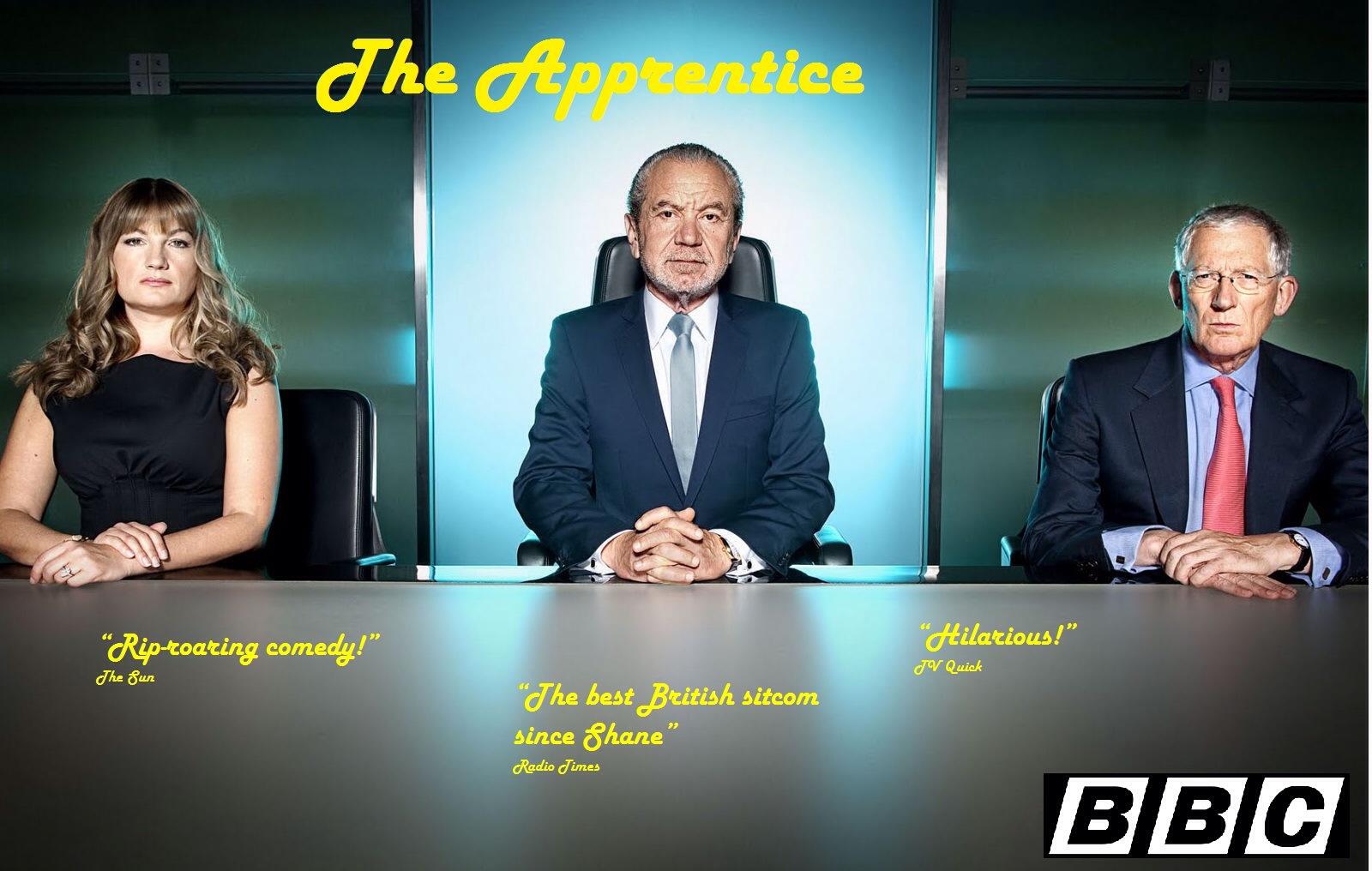Rob Gilroy: Reality vs Fiction

I was watching The Apprentice last night – I know, I know, I should be writing that sitcom idea I keep boring people with. Besides, if I want to see people dressed in garish suits, scrabbling round in the dirt, I might as well let off a stink bomb in a branch of The Kooples.
The truth is: I find The Apprentice incredibly addictive. You should give it a go. It’s my one reality TV weakness – I’ve abandoned The X Factor on account of the fact it was forcing me to have opinions on cover versions of Kelly Clarkson songs. I’ve stuck with The Apprentice though, for one simple reason:
The people on it are horrible.
If there’s one thing I love, it’s horrible people. Not in real life obviously, if I came face to face with one of the obnoxious half-Brylcreem and half-Benefit creations, I’m more likely to smile politely at them while they’re offending the world with their mere existence, and then remove myself from their radius. Stick horrendous people are on television, however, and I’ll lap it up quicker than George Galloway at an improv class.
It’s what comedy is made of. Every sitcom character is blinded by their self-perception, and it’s the same with The Apprentice candidates. Despite the fact many of them have had more successes than I’ve had short, back and sides, none of them are able to see the fatal flaw in their personality which makes them useless.
“I’m a brilliant seller – I could repackage Mexicans and sell them back to Mexico” someone blurts before failing at a task that requires them to swap stuff for money. “I’m a design expert – I came up with the slogan for my local branch of Cash Converters” – and sure enough they’re faced with a creative conundrum they can’t solve. Instead they attempt to confuse others with words like ‘bold re-branding’, ‘juxtaposition’ and ‘think-bombing’ while doing nothing but sticking their thumb up their bum and waiting for the problem to sort itself out.
The reason for these countless mistakes? Lord Sugar. Yes, it’s Alan ‘I used to make just OK stereos’ Sugar. He observes the goings-on from above like a stubbly God, or a haggard Buddha. Sure, when you’re watching from the comfort of your futon, he’s a little pathetic – a small hairy man who looks like those drawings of a face that you turn upside down to see yet another image of a face – but to the contestants he brings all manner of business-related fire and brimstone. He is the catalyst. He is fear.
Then you have the man from Countdown and the woman who used to have a smaller part in the show, following the herd of hairstyles around as they stumble from one error to another. They’re there to make things harder. Just as success seems within reach, they throw a spanner into the works or spread doubt like a self-conscious bout of Ebola. They’re also our reminder of the right way to do things. We know it’s going badly because the frowny man pulls a face, or the woman wearing winter clothing in the middle of summer shakes her head.
Then there are the tasks at hand. Sometimes simple, sometimes incredibly complex – ‘create a new species of food’ or ‘design a bra that is also a house’. The contestants stumble into these games like a middle class Takeshi’s Castle, arms flailing, legs akimbo, and make an utter smudge of the entire thing, before claiming a narrow victory by default of being the less shit ones.
At the end of their tiring days, throughout which they do less work than most employed people, then return to their house, a mansion undeserving of reprobate tenants, and talk about what they’ve learnt from their endeavours. Nothing. The reset button is pressed and next week they are back to their bumbling lanky selves.
Still not doing it for you? Well it should, because that’s a sitcom.
People putting themselves in high stake situations they can’t hope to face up to, while aiming for the ultimate, unreachable goal. They scramble around, clawing at any semblance of success with the threat of failure rings in their ears and obstacles constantly blocking their way. They reach a point where all is lost and at the last minute they’re saved, or worst comes to the worst, undergo a humiliation of epic proportions before completely ignoring any opportunity for growth or learning.
It’s incredible to see the sitcom structure so carefully adhered to by reality TV, but if you’re struggling to make plots work, it’s a handy way of seeing them interpreted outside the confines of a comedy.
And that, should anyone ask again, is why watching The Apprentice is not a waste of time, but research for that sitcom that still needs writing.



































